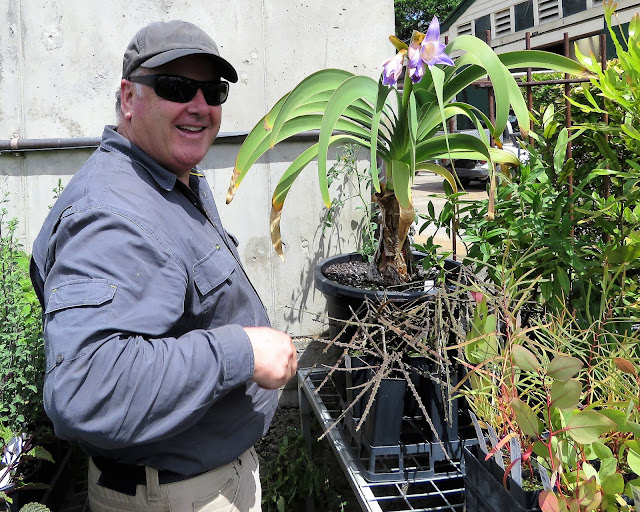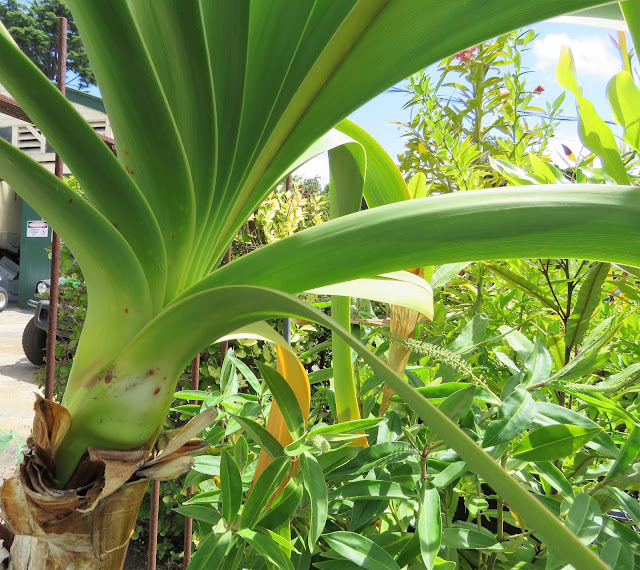The Empress of Brazil rules
I posted, briefly, on the Empress of Brazil in 2019. Not the actual empress, but on the flowering bulb from Brazil called Worsleya procera.
Maria Leopoldina was the first Empress of Brazil for a few years at the start of the nineteenth century, and for an even shorter time (a few months), Queen of Portugal. Maria was Austrian, and these titles were held through her marriage to Pedro I.
By the time this species was discovered and described by Europeans, as Amaryllis procera, Pedro II was in power with his wife and 'Empress' Teresa Christina. This was in the 1860s, the time when French explorer Joseph Libon found this striking plant on a steep granite cliff near the city of Petropolis.
This showy bulb wasn't formally separated into its own genus until 1944, when North American botanist, Hamilton Paul Traub, tidied up some earlier work where the genus name Worsleya was coined. That name commemorates a British horticulurist, Arthrington Worsley, the first to get it to flower in cultivation.
And thankful we are for the work of Libon and Worsley (and Traub for his nomenclature), so that we can enjoy this magnificent flower in our botanic (and a few other) gardens around the world today.
My photographs are from the back-of-house nursery at Melbourne Gardens, taken in early February, after our talented propagator Dermot (featured alongside the plant at the top) alerted me to its flowering.
There is another species name floating around, Worsleya rayneri, described a few years after Traub established the genus. This is an alternative name for the same species, with Worsleya procera the name we should use. So one species only.
The flowers are similar to those of the better known Hippeastrum, and this species has sometimes been referred to that genus. The most noticeable difference is the elongated 'neck' between the bulb and the leaves, which can reach a metre long. Often it has an ungainly curve to it, upsetting the pot if not well balanced.
The leaves too are curved, and neatly ranked.
I gather it is now uncommon in nature but, based on social media posts, becoming more common in cultivation. As it should be.





Comments